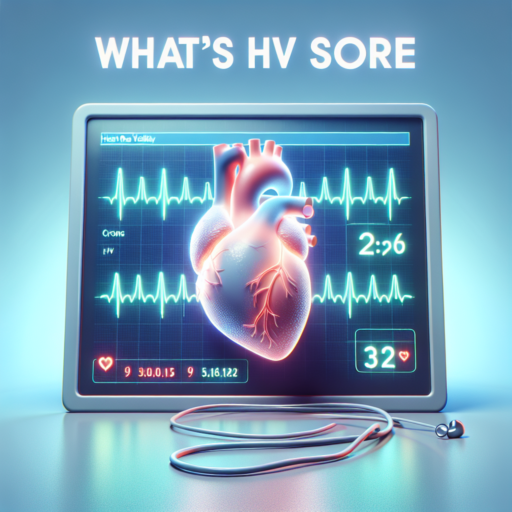What is a good HRV score?
Understanding what constitutes a good Heart Rate Variability (HRV) score is essential for those looking to gauge their overall health, stress levels, and fitness recovery. HRV measures the variation in time between each heartbeat, offering insight into your autonomic nervous system’s balance. Generally, a higher HRV indicates better cardiovascular fitness, resilience to stress, and overall health.
A good HRV score can vary significantly across individuals, depending on factors like age, gender, fitness level, and lifestyle. For most adults, an HRV score between 20 and 100 milliseconds (ms) is considered normal. However, athletes and highly fit individuals may exhibit a score well above 100 ms, reflecting their optimized autonomic systems and superior stress recovery capacity.
To understand your HRV and what it implies for your health, it’s important to consistently monitor it over time rather than relying on a singular measurement. Trends in your HRV scores can provide more actionable insights than any single reading. By observing how your score fluctuates in response to various stressors, you can better manage your health and wellness routines.
Should I worry if my HRV is low?
Determining whether a low Heart Rate Variability (HRV) is a cause for concern requires understanding what HRV signifies about our bodily functions. HRV measures the variation in time between each heartbeat, serving as a crucial indicator of our autonomic nervous system’s balance and flexibility. Generally, a higher HRV suggests a healthier, more resilient system capable of adapting efficiently to stressors, while a lower HRV may indicate stress, poor cardiovascular health, or other underlying conditions.
Factors Influencing HRV include lifestyle choices, physical fitness levels, stress, and general health conditions. For instance, high levels of stress, insufficient sleep, or a lack of regular exercise can significantly impact your HRV, lowering it. However, it’s vital to consider these factors in a broader context, as HRV can naturally fluctuate based on age, genetics, and even the time of day.
Before jumping to conclusions about a low HRV, it’s important to consult with healthcare professionals who can provide a comprehensive evaluation. They might recommend monitoring your HRV over a period, alongside other health indicators, to better understand its implications. Remember, HRV is just one piece of the puzzle, and a holistic approach is necessary to assess your overall health and well-being.
No se han encontrado productos.
What level should HRV be?
Understanding the optimal level for Heart Rate Variability (HRV) is essential for assessing one’s overall wellbeing and fitness. Generally, HRV scores can vary significantly among individuals due to factors like age, genetics, and level of physical fitness. A higher HRV is often associated with better cardiovascular fitness, stress resilience, and overall health. However, defining a ‘good’ HRV level involves examining a range of personal health indicators and lifestyle factors.
For most adults, an HRV within the range of 20-100 milliseconds (ms) is considered normal. Yet, it’s important to note that athletes and highly active individuals may experience higher HRV levels, reflecting their superior heart health and autonomic nervous system balance. The key is to monitor changes in your HRV over time, as significant deviations from your baseline can indicate shifts in health status or recovery needs.
To accurately gauge what HRV level is ideal for you, regular monitoring using a reliable HRV measurement tool or wearable device is recommended. By tracking your HRV daily, you can establish your personal baseline and observe how it fluctuates in response to stress, sleep quality, and exercise patterns. This personalized approach allows for a more nuanced understanding of what HRV levels indicate optimal health and performance for you.
What is a normal HRV during sleep?
Understanding the normal Heart Rate Variability (HRV) during sleep is crucial for anyone keen on monitoring their sleep health and overall well-being. HRV refers to the variation in the time interval between consecutive heartbeats, and it’s a critical indicator of the autonomic nervous system’s functionality. Typically, a higher HRV suggests a balanced and responsive system, signaling good health and stress resilience.
Determining a «normal» HRV during sleep can be somewhat complex because it varies widely among individuals. However, experts suggest that adults should aim for an HRV in the range of 20-200 milliseconds. It’s essential to note that HRV can be influenced by several factors including age, gender, fitness level, and overall health. Thus, tracking your HRV over time and observing trends rather than focusing on single readings can be more informative.
Factors That Influence HRV During Sleep: Several factors can affect your HRV during sleep, such as sleep quality, stress levels, and lifestyle habits. High-quality, uninterrupted sleep generally supports higher HRV scores, indicating a restorative sleep cycle. Conversely, stress and poor sleep habits can lead to lower HRV, pointing towards potential health issues or an overwhelmed autonomic nervous system. Therefore, maintaining a consistent sleep routine and managing stress are critical for optimizing your HRV and enhancing your sleep health.




